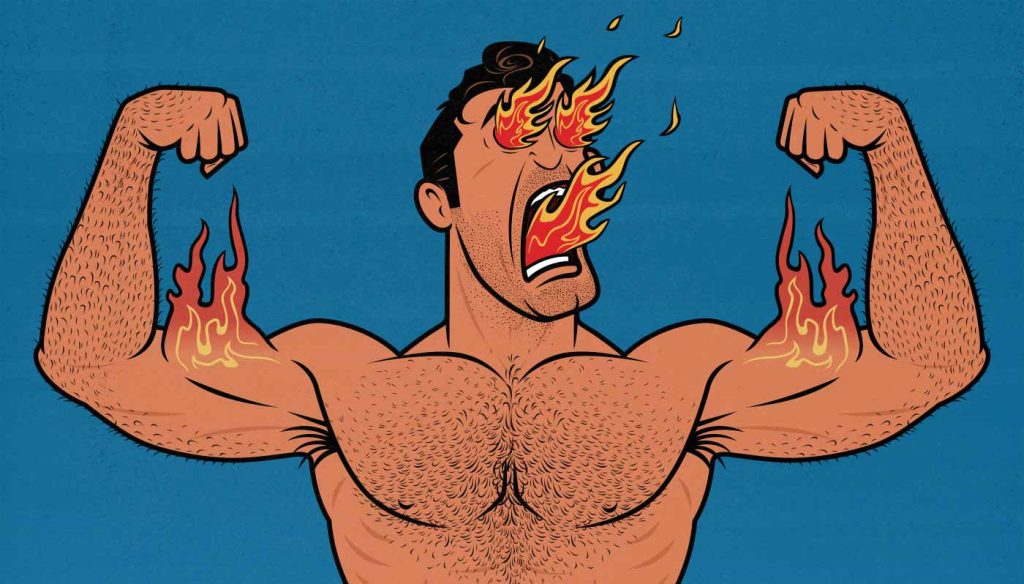
Does Turkesterone Improve Muscle Growth? (Explaining the Scam)
Turkesterone is one of the most popular (and infamous) muscle-building supplements on the market. Joe Rogan, More Plates More Dates, and Vitruvian Physique have all discussed turkesterone’s benefits. Most famously of all, Greg Doucette touts the benefits of his turkesterone supplement (Turk Builder) several times per week to hundreds of thousands of people per video.
At first, the claim was that turkesterone could boost testosterone production, boosting muscle growth. However, there isn’t any research showing increases in testosterone. Also, it doesn’t bind to the androgen receptor, so you wouldn’t expect it to increase testosterone (study). When this came out, there was a marketing pivot. Now, it’s said to promote muscle growth via other pathways, such as stimulating the production of more IGF-1, increasing mTOR. More on that in a moment.
To get to the bottom of this, I started by speaking with Dr. Eric Trexler. He’s got a doctorate degree in sports science, has published over 30 strength and hypertrophy studies, and studies metabolism at Duke University.
We also have a few studies to review, including two new human trials on turkesterone.
And then there’s the drama: the scams, scandals, and redemption arcs.
We don’t sell turkesterone. No affiliate links.
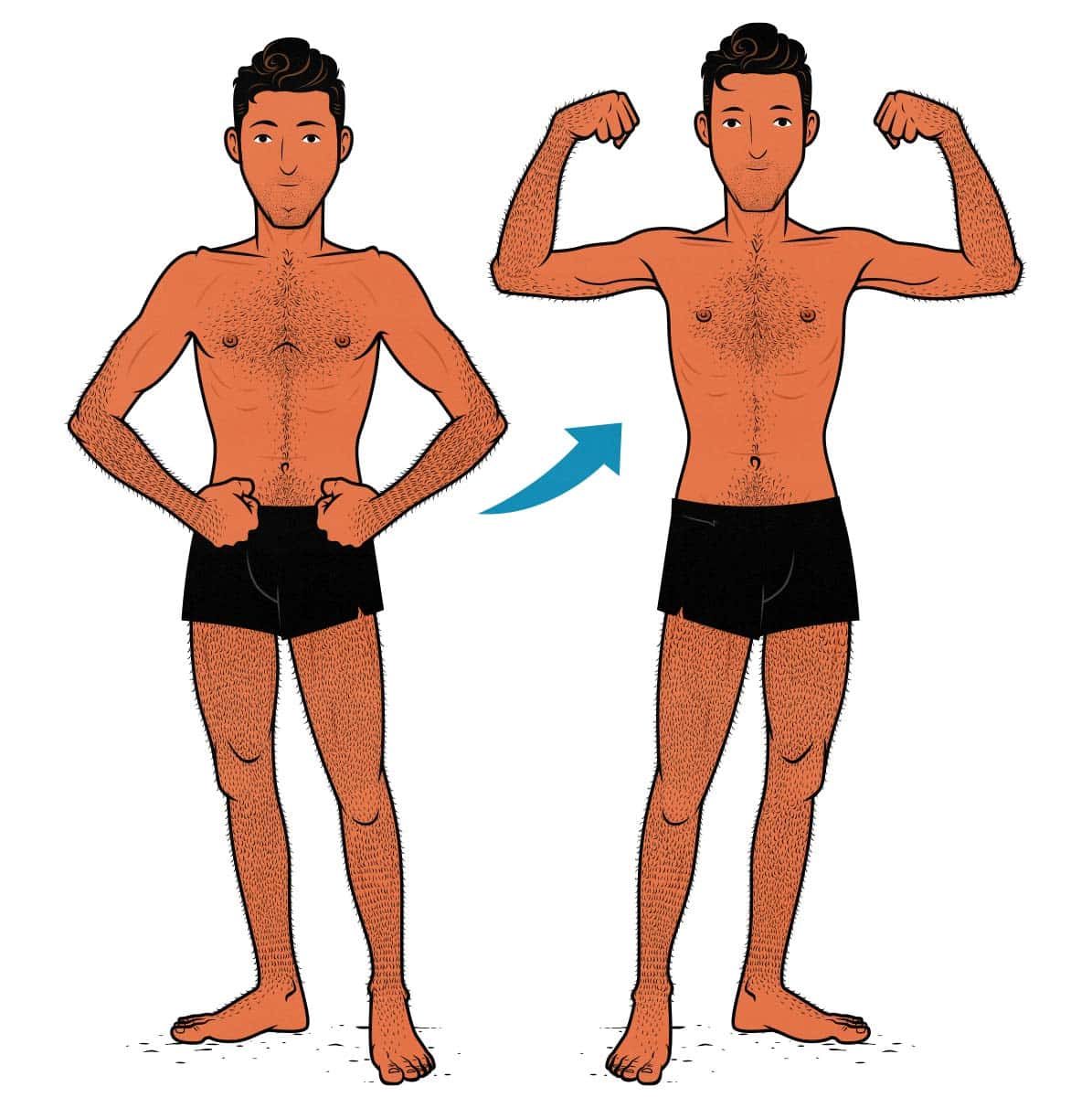
What is Turkesterone?
Ecdysteroids were a trendy bodybuilding supplement a few decades ago. They’re chemicals produced by plants (such as spinach) as a defence mechanism against insects. When insects consume the plant, the phytoecdysteroids make their shells fall off (moult), killing them.
The idea was that they could serve as a healthier, less stigmatized alternative to anabolic steroids. Unfortunately, all of the research was either suspect or found no benefits, so the trend was short-lived, and everyone forgot about them.
That’s when turkesterone came in. It’s an ecdysteroid, just like the others, but it has a different name, and maybe it has different effects.
Is Turkesterone Good for Building Muscle?
A Quick Review of the Turkesterone Research
A few studies found ecdysteroids (such as turkesterone) had performance-enhancing effects in birds and beetles (study, study). However, the International Society of Sports Nutrition (ISSN) considers these studies unreliable because they weren’t published in reputable journals, the design of the studies was subpar, the results were poorly presented, and they weren’t conducted on humans.
There’s one randomly controlled ecdysterone trial conducted on humans. It’s this paper by Isenmann and colleagues. The results were impressive:
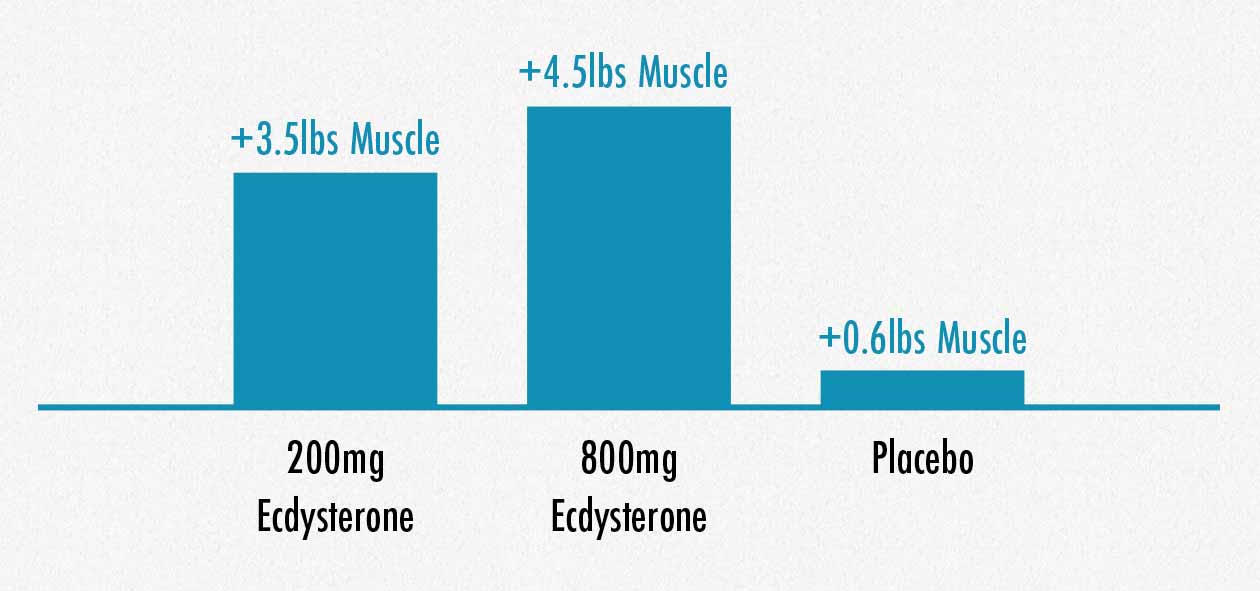
But the study is a little weird. The ecdysteroid supplements they were testing only contained 6% of the dosage listed on the label, which shouldn’t have been enough to produce an effect. But it did. At least according to the BIA scale they used.
However, as everyone who’s ever used a BIA scale while bulking will know, they’re infamously bad at differentiating between muscle growth, fat gain, and any other change in lean mass. So, although these results are interesting, I’m skeptical, as are most experts.
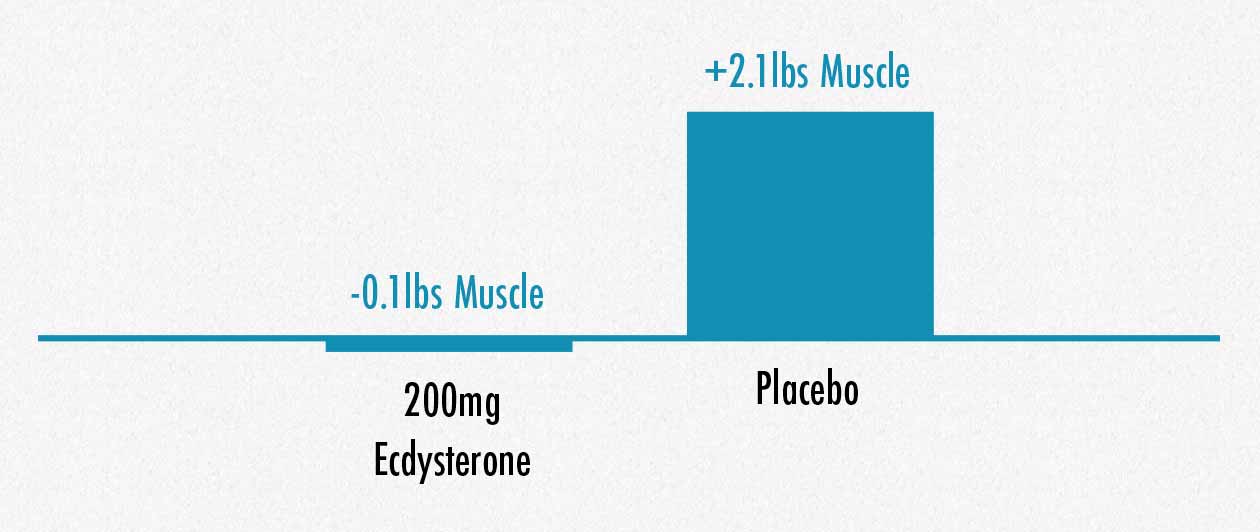
There’s another study we can look at. This time, the researchers used DEXA scans to measure muscle growth. DEXA is far more reliable.
In this study, the placebo group gained 2.2 pounds more muscle than the guys taking ecdysteroids, though the results didn’t reach statistical significance. This doesn’t suggest that turkesterone harms muscle growth, just that small studies often find differences between groups, and those differences don’t necessarily prove anything.
This second paper is the more credible of the two. As a result, the ISSN’s stance on turkesterone is:
Ecdysterones [including turkesterone] are not recommended for supplementation to increase training adaptations or performance.
The International Society of Sports Nutrition
It’s also worth pointing out that the above are studies on ecdysteroids, not on turkesterone specifically. (Since posting this article, two human studies on turkesterone have been published. I cover them below.)
A Brief Conversation With a Supplement Researcher
Perhaps there’s more to the research. Maybe there’s a mechanism we’re overlooking. Maybe there’s more to turkesterone than meets the eye. So, we asked Dr. Eric Trexler whether turkesterone could plausibly help someone bulk up.
Dr Trexler has published over 30 studies. Perhaps more relevantly, he professionally reviews hypertrophy research, including both of the turkesterone studies. He told me:
At this time, there is not sufficient evidence to suggest that turkesterone enhances increases in strength or muscle mass in humans.
Eric Trexler, PhD, Monthly Applications in Strength Sport (MASS)
If you’ve been in the fitness industry for a while, you know how these things go. Glutamine is the hot thing, then gets disproven. Then arginine. Then BCAAs. Then Tribulus.
Sometimes, these supplements come back for a second round of hype. That’s what’s happening right now. Ecdysteroids were popular a couple of decades ago. Now they’re popular again because turkesterone is a new variation that hasn’t been solidly disproven yet.
Supplement hype rarely lasts long, but while it does, millions of dollars are made from people yearning for an edge.
Is Turkesterone A Scam?
The next question is whether turkesterone supplements contain the ingredients they advertise in doses that could conceivably be effective. This is where the argument for turkesterone begins to break down even more.
The controversy began with Nootropics Depot, a lab that tests the quality of various supplements. They tested a few of the most popular brands of turkesterone, including the turkesterone sold by Gorilla Mind (owned by More Plates More Dates) and Harder Than Last Time (owned by Greg Doucette). They found that these supplements contained less than 1% of the turkesterone they advertised.
Nootropics Depot also sells its own supplements, including ecdysterone. This makes them a competitor to the brands who sell turkesterone. As a result, their claims were met with quite a lot of skepticism. However, when More Plates More Dates and Greg Doucette hired independent labs to test their own supplements, they confirmed that the turkesterone was fake. The supplements did indeed contain less than 1% of the turkesterone advertised on the bottle.
So it seems that even the anecdotal evidence in favour of turkesterone comes from people using fake turkesterone supplements.
The 2022 Turkesterone Scandal
A new study was just published. It was looking at whether supplements actually contain the ingredients on the label. They tested turkesterone supplements. None of the turkesterone supplements contained even 1% of the turkesterone quantity claimed on the label.
At this point, the evidence is overwhelming: turkesterone is a scam. It probably doesn’t work, and you can’t buy it anyway—all of the turkesterone on the market is fake.
2025 Update
A randomly controlled trial on humans found that turkesterone had no effect on IGF-1 levels (study). That means that there’s no known mechanism through which turkesterone could improve muscle growth. And indeed, it doesn’t seem to improve muscle growth.
A second randomly controlled trial on humans found that turkesterone didn’t improve muscle growth (study). In fact, the placebo group gained slightly more lean mass. The differences were meaningless, though, and didn’t reach statistical significance.
On the bright side, influencers are now selling actual turkesterone. It seems that some people, including Greg Doucette, have found a way to get their hands on genuine turkesterone. As of 2025, it seems that HTLT Turk Builder contains the advertised doses of turkesterone, as tested by third-party labs.
This might sound promising, but remember that Greg Doucette claimed to get extreme muscle-building benefits from the fake turkesterone. Now that he has real turkesterone, his claims are the same, which makes me doubt they’re any more credible.
Also, remember that there’s no evidence to suggest that real turkesterone does anything at all. But at least what’s in the bottle finally matches what’s on the label.
I wish it worked. My career depends in part on how good my physique looks, and it depends greatly on the results I get for clients, and I don’t take or recommend turkesterone.
Instead, I recommend supplements with proper evidence behind them: protein powder, creatine, and even weight gainers (in some circumstances). For more experimental supplements, I’m a fan of citrulline malate, camu camu, taurine, and spirulina. I’m not making any big claims about their effectiveness, but there’s way more evidence behind them than turkesterone.
Muscle, Fitness, Health, Energy, and Aesthetics
Most Powerful Supplements Guide
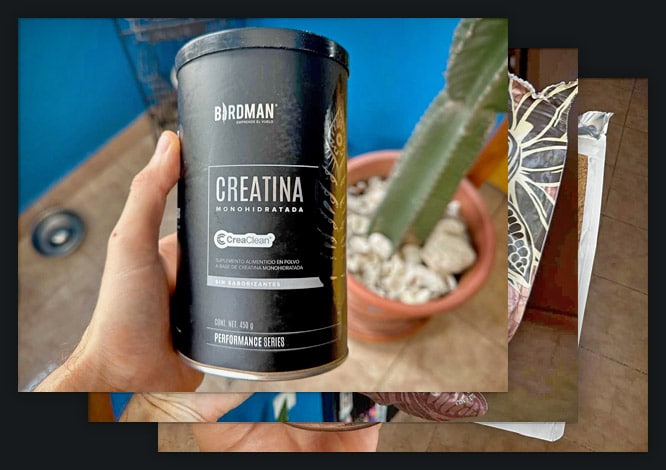
Get our most powerful supplements guide with the full explanations, and steps to follow.
Plus, we’ll make sure you’re on the b2B newsletter, and send you all of our best muscle-building content.
Final Review
All of the research on turkesterone shows that it has no effect on people. It doesn’t seem to be dangerous. It seems to be nothing more than an expensive placebo pill.
Most hype surrounding turkesterone comes from the people who produce it, sell it, or make affiliate revenue from promoting it. Those people tend to have a history of scamming their audiences. The most credible experts think it’s a scam. I don’t know a single serious lifter, bodybuilder, or athlete who bothers taking it.
With supplements, it’s wise to be a late adopter. There are a few good muscle-building supplements with decades of research proving their effectiveness: creatine, caffeine, and protein. These are the supplements you should turn to when you’re looking for better muscle-building results.
Finally, keep in mind that even the best supplements pale in comparison to hypertrophy training, eating a good bulking diet, and getting enough good sleep.

If you want all the latest muscle-building information, we have a newsletter for naturally thin guys. If you want a full foundational bulking program, including a 5-month full-body workout routine, diet guide, recipe book, and online coaching, check out our Bony to Beastly Bulking Program. Or, if you want a customizable intermediate bulking program, check out our Outlift Program.

